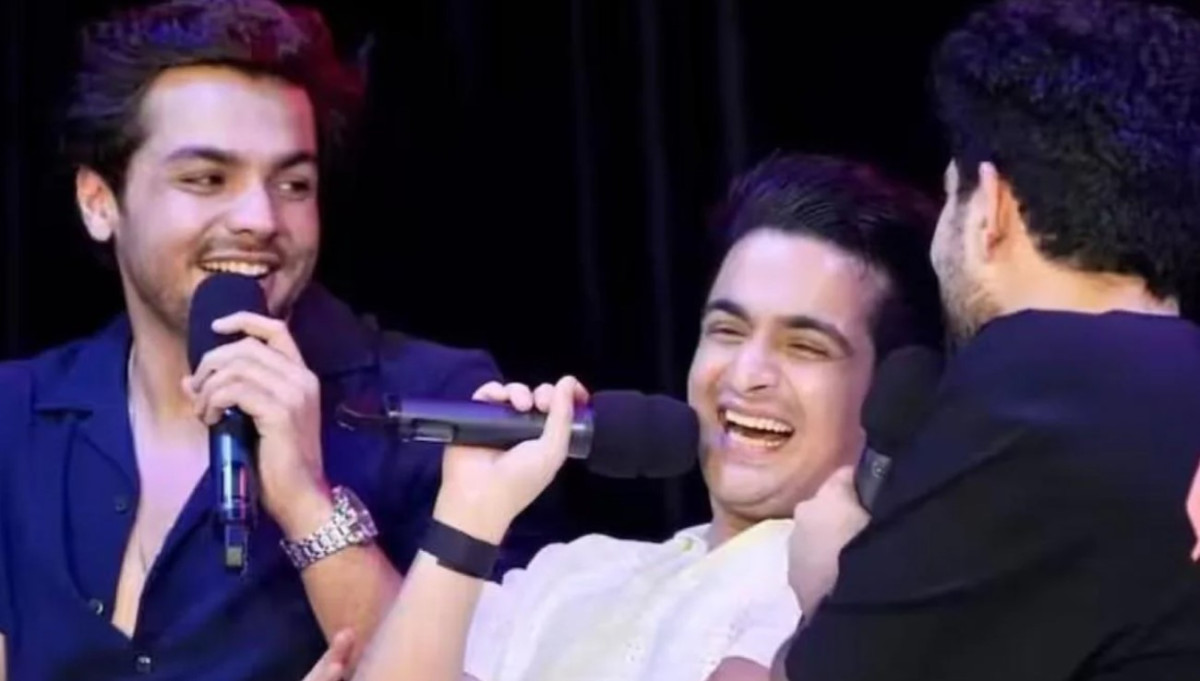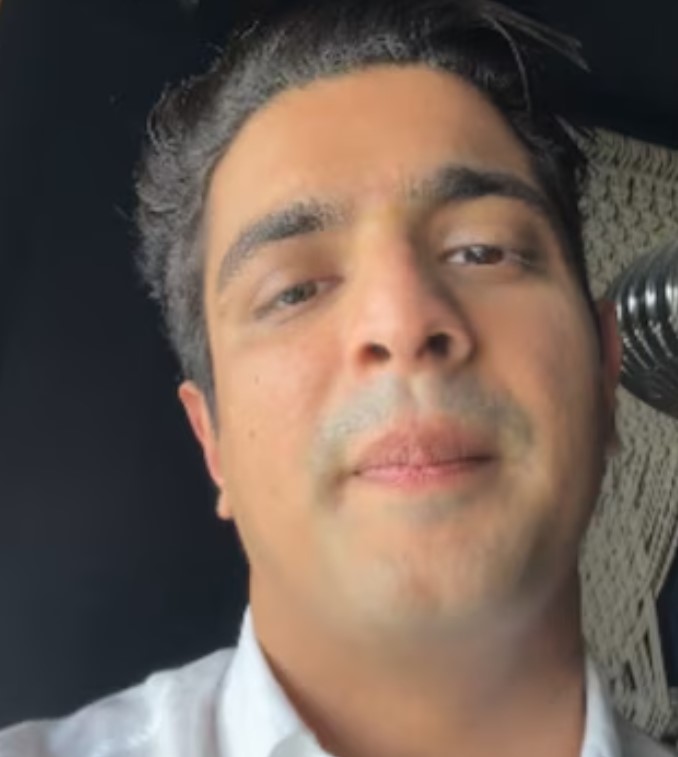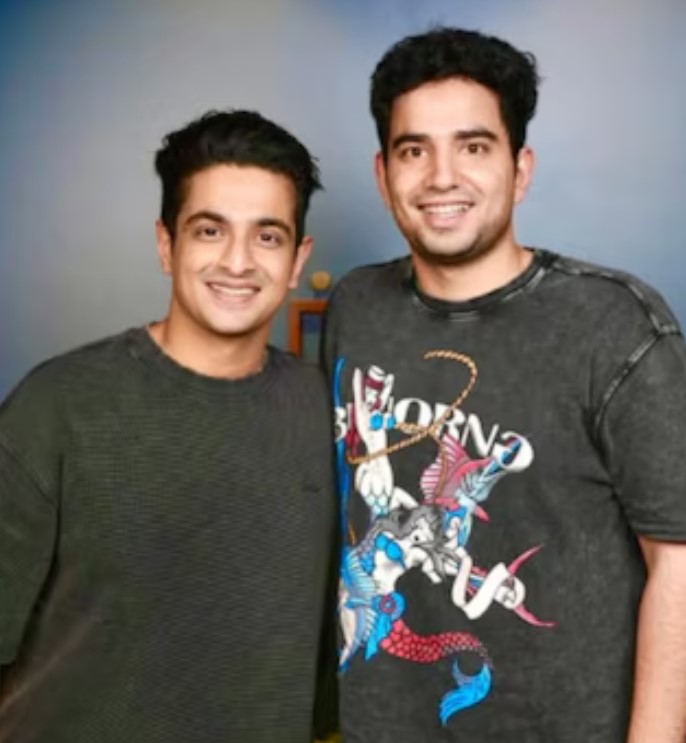Ranveer Allahbadia Controversy Viral Video and Apology
Ranveer Allahbadia, a well-known Indian podcaster and YouTuber, has found himself at the center of a major controversy following his remarks on a recent episode of India’s Got Latent. Popularly known as the “BeerBiceps Guy,” Allahbadia has built a massive following, with over 4.5 million Instagram followers and 10.5 million YouTube subscribers. His podcasts usually focus on self-improvement, business insights, and inspirational conversations. However, his recent attempt at comedy has sparked public outrage and legal trouble.

During the show, hosted by comedian Samay Raina, Allahbadia posed a crude and highly inappropriate question to a contestant. A short clip of the moment quickly went viral, drawing widespread criticism from social media users. Many condemned the rising trend of explicit content being easily accessible to all age groups, especially children, and questioned the responsibility of content creators in maintaining ethical standards.
In response to the growing backlash, YouTube removed the episode after receiving a notice from the Information and Broadcasting Ministry. Additionally, the National Human Rights Commission (NHRC) intervened, demanding the removal of the video and highlighting concerns about its impact on societal values.
The controversy has also taken a legal turn. Multiple police complaints have been filed against Allahbadia and others involved in the show, including a case in Assam. Chief Minister Himanta Biswa Sarma confirmed that the charges include obscenity and other legal violations.
Facing immense pressure, Allahbadia issued a public apology, acknowledging that his remarks were inappropriate and not in line with the responsible image he wishes to uphold. However, the incident has reignited discussions about content regulation, influencer accountability, and the ethical responsibilities of digital creators.
Contents
The Controversial Incident and Video
Ranveer Allahbadia’s appearance on the online show India’s Got Latent has sparked widespread outrage due to an inappropriate question he posed to a contestant. The show, hosted by comedian Samay Raina, is known for its unfiltered humor and edgy content, but this particular episode crossed the line for many viewers.
Ranveer Allahbadia incident video 1
Ranveer Allahbadia incident video 2
During the segment, Allahbadia asked a deeply offensive and crass question: “Would you rather watch your parents have every day for the rest of your life or join in once and stop it forever?” The remark was met with mixed reactions on set, but once a short clip from the episode surfaced on social media, it quickly ignited a firestorm of criticism.
Social media platforms were flooded with backlash, with users condemning the content as tasteless, inappropriate, and harmful. Many pointed out how such content, easily accessible to people of all ages, can negatively influence young audiences. Others criticized the increasing trend of online content creators resorting to shock value for engagement and views.
The outrage extended beyond the internet, drawing the attention of authorities and public figures. Critics argued that digital creators must exercise more responsibility, especially those with large followings. The incident also fueled a broader debate about the ethics of humor, the limits of free speech, and the necessity of content moderation in the digital space.
YouTube’s Removal of the Episode
As public outrage grew, YouTube took swift action by removing the controversial episode of India’s Got Latent. The decision came after the platform received an official notice from the Information and Broadcasting Ministry, urging them to take down the content due to its offensive nature.

In addition to government intervention, the National Human Rights Commission (NHRC) also got involved. NHRC member Priyank Kanoongo highlighted the problematic nature of the content, stating that it violated ethical standards and could be deemed offensive, particularly toward women. The NHRC not only demanded the removal of the video but also urged law enforcement agencies to investigate the matter further.
This incident has reignited conversations about the role of digital platforms in moderating content. While YouTube has community guidelines prohibiting explicit or harmful material, critics argue that enforcement is inconsistent. The availability of mature content on platforms like YouTube raises concerns about its accessibility to younger audiences, prompting calls for stricter content regulations.
Additionally, the removal of the episode has sparked debates over censorship versus free speech. While many believe that YouTube made the right decision in taking down the offensive content, others argue that online platforms should avoid selective moderation and apply consistent standards across all creators.
Legal and Government Response
The controversy surrounding Ranveer Allahbadia has now escalated into legal trouble. Multiple police complaints have been filed against him and others involved in the episode, with one case registered in Assam and several others in Mumbai. Authorities are investigating the matter under various legal sections, including charges of obscenity.
Assam Chief Minister Himanta Biswa Sarma confirmed that legal action is being taken against those responsible for the episode. He emphasized that public figures and content creators must adhere to ethical guidelines, warning that offensive content will not be tolerated. The inclusion of obscenity-related charges signals the government’s increasing focus on regulating digital content and holding influencers accountable for their actions.

Furthermore, NHRC member Priyank Kanoongo expressed serious concerns regarding the nature of the content. He stated that beyond being offensive, the remarks could also be seen as a violation of human rights. According to him, the participants in the show engaged in behavior that could be deemed inappropriate, and some comments were even alleged to contain racist undertones. Given these concerns, the NHRC issued a notice to YouTube, urging them to prevent the circulation of such content and to work closely with law enforcement agencies.
This incident serves as a wake-up call for digital influencers and content creators, highlighting the potential legal consequences of irresponsible content. It also raises broader questions about how authorities should regulate online media without infringing on creative freedom. As the legal proceedings unfold, the case will likely set a precedent for future actions against controversial online content.
Ranveer Allahbadia’s Apology and Public Statement
Following intense backlash and legal scrutiny, Ranveer Allahbadia issued a public apology, acknowledging that his remark was inappropriate and uncalled for. The podcaster, known for his motivational content, admitted that he had made a serious lapse in judgment.
In a video statement, Allahbadia directly addressed his audience, stating, “My comment wasn’t just inappropriate; it wasn’t even funny. Comedy is not my forte, and I am just here to say sorry.” He expressed regret over his words, emphasizing that he had no intention of promoting or normalizing such content.
Allahbadia further stated that he had received numerous messages questioning whether this was the kind of content he planned to continue creating. He firmly denied any such intention, clarifying that this was a mistake rather than a deliberate shift in his content strategy. “Obviously, this is not how I wish to use my platform,” he said, indicating that he wanted to be more mindful of the responsibility that comes with having a vast audience.
The podcaster also acknowledged that his platform reaches people of all ages, and he expressed concern about the impact of his words. “The podcast is watched by people of all age groups. I don’t want to be the kind of person that takes that responsibility lightly,” he stated. He further emphasized that he holds strong family values and would never want to create content that disrespects family relationships.
His apology, while appreciated by some, did not entirely quell the controversy. Critics argued that such an incident should not have occurred in the first place, and many questioned whether his apology was genuine or simply damage control. Nonetheless, his statement reflected an effort to take responsibility and address the concerns raised by both his audience and authorities.
Broader Implications
This controversy has sparked a larger debate about the responsibility of influencers, podcasters, and digital content creators. With social media platforms offering unprecedented reach, the question arises: how much accountability should content creators have for what they say online?
Many argue that influencers with millions of followers should be more mindful of their words, especially given the influence they hold over younger audiences. Unlike traditional media, where content is regulated by editorial guidelines and government policies, digital platforms provide more creative freedom but with that freedom comes the responsibility to uphold certain ethical standards.
The role of digital platforms like YouTube has also been a key topic of discussion. While YouTube removed the video after government intervention, critics argue that platforms should have stricter preemptive measures to filter out problematic content before it goes viral. Some believe that YouTube and similar platforms need to implement more effective content moderation tools, while others fear that increased regulation could lead to excessive censorship, restricting free speech and creative expression.
Additionally, the controversy highlights the impact of controversial humor and mature content in the digital space. Many comedians and content creators argue that humor should be allowed to push boundaries, but where should the line be drawn? The rise of shock value content designed to provoke reactions and generate engagement—raises ethical concerns about the long-term effects of such material on society. If such content continues to gain popularity, it could normalize inappropriate discussions, making it harder to maintain a respectful and inclusive online culture.
This incident has led to renewed discussions about the need for clearer content guidelines, stronger age restrictions, and more accountability from both content creators and the platforms that host them.
The controversy surrounding Ranveer Allahbadia’s remarks on India’s Got Latent has sparked widespread public outrage, legal action, and increased scrutiny on digital content regulation. His crass remark, which quickly went viral, was met with significant criticism, leading to YouTube’s removal of the video and intervention by the NHRC.
In response, Allahbadia issued a public apology, acknowledging his mistake and promising to be more mindful of the influence he holds. However, the backlash has raised broader concerns about the ethical responsibilities of content creators and the role of digital platforms in moderating controversial material.
The incident has underscored the growing debate about balancing creative freedom with social responsibility. While influencers enjoy the freedom to express themselves online, they must also recognize the power and reach of their platforms. This controversy serves as a wake-up call for digital creators, reminding them that accountability is crucial in an age where content spreads rapidly and has real-world consequences.
Moving forward, this case could set a precedent for how governments, platforms, and content creators handle similar controversies. It remains to be seen whether stricter regulations will be put in place or if this will serve as a cautionary tale for other influencers to exercise greater discretion in their content. Ultimately, the incident reinforces the importance of ethical responsibility in digital media and the need for a more structured approach to content regulation in the evolving online landscape.
Hot News -Wes Watson Fight Video and Breaking Down
Montoya Por Favor Video Breakdown and Exploring
Maya Buckets Viral Video and Its Aftermath
Guru Agama Grobogan Islam and Murid Viral Video
Bulan Sutena Viral Video Scandal and Public Reactions
Bianca Censori Grammys Video and Outfit Controversy
Thaddeus Matthews Video and Cussing Pastor Viral
